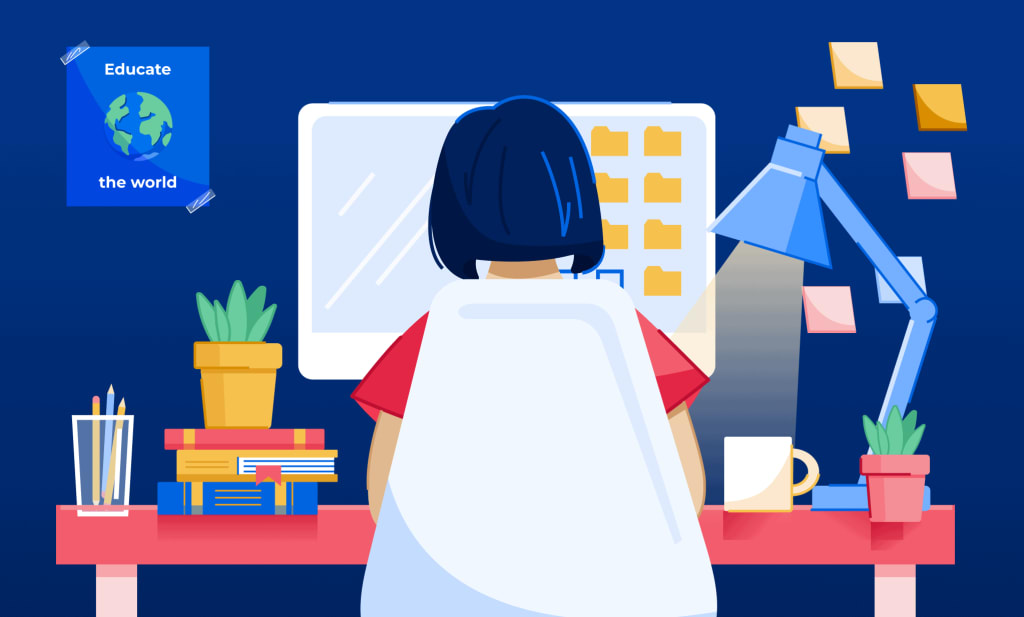9 Tips for a better study
What should I do for Effective Scientific Study?

9 Techniques for effective scientific Study
Embarking on the academic journey, the quest to study efficiently rather than extensively is a common pursuit. Unveiling scientifically-backed study tips that lead to academic excellence is the focal point of this discussion. Research underscores the effectiveness of shorter, spaced study sessions compared to lengthy cramming, aligning with principles observed in various skill acquisition endeavors, from sports to artistic pursuits.
1. Short and Frequent Study Sessions: Scientific findings emphasize breaking down study time into twenty to thirty-minute intervals over several weeks, optimizing information encoding in the brain's synapses.
2. Establishing a Routine: Designating specific times for study, whether daily or weekly, proves to be a beneficial routine that primes the brain for learning, making the assimilation of knowledge more seamless over time.
3. Active Learning with Flashcards: Passive methods like rereading notes or highlighting textbooks are ineffective. Instead, utilizing flashcards during dedicated study sessions or downtime emerges as a scientifically endorsed method for memory reinforcement.
4. Setting Clear Goals: Defining specific goals for each study session, such as mastering chemical equations or language intricacies, enhances concentration and comprehension.
5. Clarity in Understanding: The adage "if you can't explain it simply, then you don't understand it well enough" underscores the importance of clarity in learning, promoting a deeper understanding of the material.
6. Teaching Enhances Comprehension: Students anticipating teaching the material outperform those preparing solely for tests. The act of teaching prompts the brain to organize information logically, fostering a more coherent understanding.
7. Practice Tests: Incorporating regular practice tests not only simulates exam conditions but also identifies knowledge gaps, leading to increased confidence and improved performance.
8. Optimal Study Environment: Designing a dedicated study space equipped with necessary tools enhances concentration, creating an optimal learning environment.
9. Minimizing Distractions: While classical music may aid concentration, recent studies caution against rhythmic background noise. Minimizing distractions, such as phones, becomes crucial for maintaining focus during study sessions.
In addressing the inevitable stress of exams, resources like ASAP videos offer valuable tips on managing exam anxiety, completing a comprehensive exploration of scientifically proven study techniques. A special acknowledgment goes to TD for sponsoring this insightful journey into effective and evidence-based studying.
Extra tips
Believing into the educational journey of Elon Musk reveals a unique perspective on learning that diverges from the conventional reliance on formal education. Musk, despite holding two degrees from the University of Pennsylvania, attributes little of his success to his college education. Instead, he has developed distinct techniques for learning that he believes can transform individuals into better versions of themselves. Musk's criticism of the modern education system stems from his belief that it lacks emphasis on rapid and thorough learning, critical thinking, and problem-solving skills.
Elon Musk's academic background includes obtaining a bachelor's degree in economics and physics from the University of Pennsylvania. While initially intending to pursue a Ph.D. at Stanford, Musk's entrepreneurial spirit led him to co-found the web software company Zip2 with his brother Kimball. Musk, a vocal critic of traditional education, sought an alternative path by turning to textbooks and experts in specific fields to guide his learning. One key individual Musk reached out to early on was Jim Cantrell, a subject matter expert in satellite systems, whom Musk contacted out of the blue in 2001.
Jim Cantrell, impressed by Musk's intellect, lent him textbooks on rocket science and astrodynamics. Musk's approach to learning involved not only absorbing information but also applying it effectively. Musk's extensive reading history, including early endeavors like reading the entire Encyclopedia Britannica at the age of nine, contributed to his success. Beyond books, Musk emphasizes surrounding himself with the best minds in various fields, engaging in discussions to acquire their knowledge. Musk's commitment to self-education extended to SpaceX, where he collaborated with industry experts like Jim Cantrell.
Elon Musk's dedication to knowledge acquisition is reflected in his reading habits, with an acknowledgment that he was "raised by books." Musk recommends books about other geniuses and credits his success to his continuous reading. While not everyone may have ten hours a day for reading, Musk's principles for knowledge acquisition and application involve understanding fundamental principles before delving into details. Musk's two key principles include reviewing knowledge in a semantic tree and recognizing the importance of connecting information to enhance memory.
In his hiring practices, Musk challenges the notion that a college degree is a prerequisite for employment, emphasizing practical knowledge and application. Musk's approach to learning extends beyond memorization to the practical application of acquired knowledge. His philosophy involves starting with the core, adding more knowledge over time, and applying it in a building-out fashion. This unique perspective on education shapes not only Musk's personal journey but also his expectations from potential candidates. In essence, Musk's approach emphasizes the importance of practical application and a continuous quest for knowledge in achieving success.





Comments (1)
I think this helps. find me [email protected]